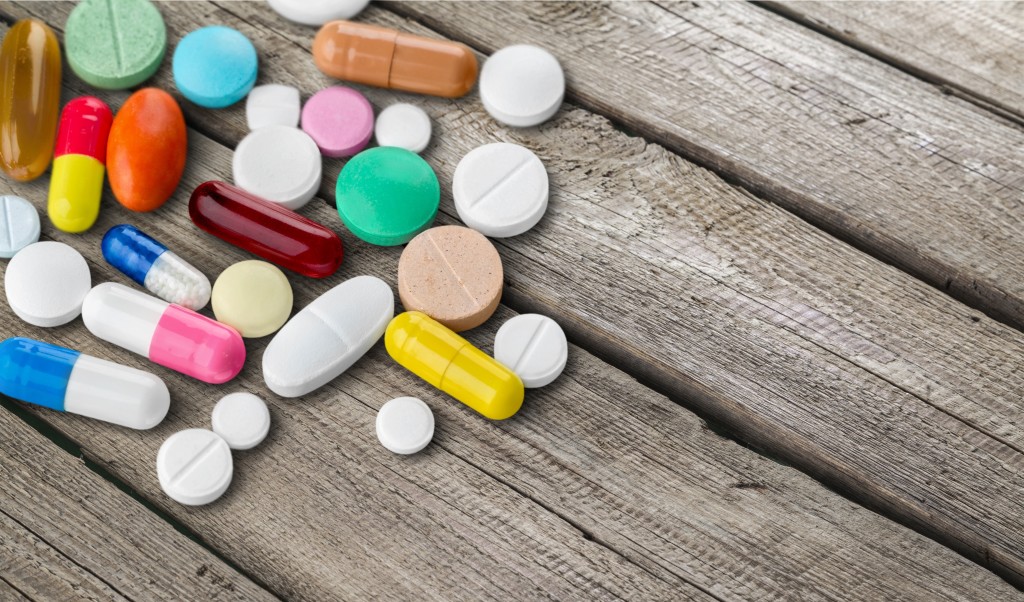Bloating
5 Medications That Can Seriously Bloat You
When a patient walks into my office complaining of bloating, the first place I look is their medicine cabinet. Here are five of the biggest culprits, and some bloat-busting solutions:
- Antibiotics
Antibiotics kill pathogens, or “bad” bacteria, but they also kill off huge numbers of the good bacteria essential for gut health. Unfriendly fungal species and undesirable gas-producing microbes quickly proliferate to fill the void. The result is dysbiosis, or bacterial imbalance, one of the most common causes of bloating.
Antibiotic Cure:
1. Take a probiotic during and after antibiotics (continue for at least one month after finishing antibiotics). Probiotics containing strains of Lactobacillus and Bifidobacterium are the most useful, as well as those containing the beneficial yeast Saccharomyces boulardii.
2. Eat prebiotic foods to support your gut microbes. Foods high in fiber and resistant starch feed your microbes and help to promote species diversity, which can decrease dramatically after a course of antibiotics.
3. Drink ginger tea – it has a soothing effect on the digestive system and can help to reduce gas and bloating associated with taking an antibiotic.
4. Skip the acid suppression. Blocking stomach acid while taking an antibiotic leaves you vulnerable to overgrowth of pathogenic bacteria like diff that can lead to serious infection. Stop acid suppressing drugs seventy-two hours before and while taking antibiotics to allow levels of stomach acid to return to normal.
- Birth Control Pills
Birth control pills (BCP) contain estrogen that can cause fluid and salt retention, as well as weight gain. They can also lead to insulin resistance, interfering with your ability to lose weight. The end result is often a rapidly expanding mid-section.
Birth Control Pill Cure:
Weight gain of more than 5 percent of your total body weight after starting BCP may be a sign of insulin resistance and should prompt a discussion with your doctor. Using a non-hormonal form of birth control or choosing a BCP with the lowest amount of estrogen makes sense if bloating, weight gain, or insulin resistance are issues.
- Nonsteroidal Anti-Inflammatory Drugs (NSAIDs)
NSAIDs may help alleviate inflammation in your joints, but they’re a major cause of inflammation in your gut, and they can make you bloated as a result of damage to your intestinal lining. NSAIDs also cause fluid retention, so in addition to feeling bloated, they can make you look puffy all over.
NSAIDs Cure:
Look for pain relievers that don’t contain ibuprofen or aspirin, and consider an anti-inflammatory diet or mind-body techniques instead of reaching for bloat-causing NSAIDs for aches and pains.
- Steroids
Steroids are used to combat almost every form of inflammation, but because of their extensive side effects and ability to suppress your immune system, they’re also a major cause of microbial imbalance (dysbiosis). Even steroid creams applied to your skin can be absorbed in sufficient amounts to cause side effects if they’re used for long enough and in high enough concentrations.
Steroid Cure:
Because they suppress your adrenal glands’ production of native steroid hormones, if you’ve been prescribed steroids, taper them slowly. Abruptly stopping them can result in adrenal crisis where your body lacks enough steroid hormones for proper function.
An anti-inflammatory diet that excludes known causes of inflammation such as alcohol, refined sugars, processed grains, unhealthy fats, and poor-quality animal protein and focuses on large amounts of fresh organic vegetables, fruits, and healthy fats can help heal inflammation, keep you off steroids, and get rid of your bloat.
- Codeine
If you’re taking codeine (or other opiate type drugs) on a regular basis as a cough suppressant, to control diarrhea, or for pain relief, you may be swapping old symptoms for new ones: constipation and bloating. Codeine increases transit time through your GI tract, causing a general slow-down of traffic on your digestive superhighway, and as a result of the delays, motility problems and lots of bloating.
Codeine Cure:
Check to make sure none of the medications you’re taking contain codeine or other opiates. If you’ve been prescribed codeine for pain relief, ask your doctor if there’s a non-narcotic pain reliever that might be appropriate instead. Depending on how much codeine you’ve been taking, you may need to wean yourself off gradually to avoid withdrawal symptoms.
For 101 other things that can bloat you and their solutions, read The Bloat Cure: 101 Solutions for Real and Lasting Relief.
By: Dr. Robynne Chutkan

